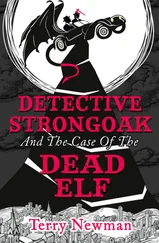William Brodrick - The Gardens of the Dead
Здесь есть возможность читать онлайн «William Brodrick - The Gardens of the Dead» весь текст электронной книги совершенно бесплатно (целиком полную версию без сокращений). В некоторых случаях можно слушать аудио, скачать через торрент в формате fb2 и присутствует краткое содержание. Жанр: Триллер, на английском языке. Описание произведения, (предисловие) а так же отзывы посетителей доступны на портале библиотеки ЛибКат.
- Название:The Gardens of the Dead
- Автор:
- Жанр:
- Год:неизвестен
- ISBN:нет данных
- Рейтинг книги:4 / 5. Голосов: 1
-
Избранное:Добавить в избранное
- Отзывы:
-
Ваша оценка:
- 80
- 1
- 2
- 3
- 4
- 5
The Gardens of the Dead: краткое содержание, описание и аннотация
Предлагаем к чтению аннотацию, описание, краткое содержание или предисловие (зависит от того, что написал сам автор книги «The Gardens of the Dead»). Если вы не нашли необходимую информацию о книге — напишите в комментариях, мы постараемся отыскать её.
The Gardens of the Dead — читать онлайн бесплатно полную книгу (весь текст) целиком
Ниже представлен текст книги, разбитый по страницам. Система сохранения места последней прочитанной страницы, позволяет с удобством читать онлайн бесплатно книгу «The Gardens of the Dead», без необходимости каждый раз заново искать на чём Вы остановились. Поставьте закладку, и сможете в любой момент перейти на страницу, на которой закончили чтение.
Интервал:
Закладка:
He seemed to have vanished, so deep was the darkness.
‘Where shall I start?’ asked Anselm, sharply awake to the presence in front of him.
‘The fly-leaf of an incomparable book.’
Anselm recalled the inscription in The Following of Christ, written by a nun, and he smiled at the figure before him as it clanked and fumbled once more with the lock.
By late afternoon the next day all the necessary arrangements for Anselm’s trip to London had been made: a room had been secured with the Augustinians in Hoxton; consecutive meetings had been organised with Debbie Lynwood and Inspector Cartwright (who, of course, knew nothing of Elizabeth’s floundering project and the evidence held by George Bradshaw); after a long and entertaining conversation between Anselm and the Provincial of the Daughters of Charity, an appointment had been made with Sister Dorothy – a maverick soul, it transpired, who now endured forced retirement in Camberwell; and, finally the Prior had produced an envelope containing sufficient funds for a week, a generous act that had spared Anselm a reunion with the cellarer.
After vespers Father Andrew called Anselm out of his stall to the centre of the choir. Following ancient custom, no one left Larkwood on a journey without the Prior’s blessing. He had a little book full of well-phrased send-offs. You’d kneel wondering which one you were going to get.
Anselm bowed his head but, like a blasphemy he thought of Riley: the bobbing knee, jangling gold on a bony wrist and thin, fixed lips. The image turned Anselm cold, and he woke, as if stunned, for the Prior’s concluding words:
‘May the light guide your steps, your thoughts, your words and your deeds; and may it bring you safely home, if needs be by a different path.’
18
Night had fallen and George felt a sudden urge to stay in a spike. As institutions devoted to the needs of those without shelter, they didn’t compare favourably with the Bonnington, but they had three things in common: a roof, lots of beds and an effective heating system. The combination had its attractions when – like now – it was so wet that the air itself seemed to advance like the Atlantic. The council was responsible for these night shelters. In some you had to lie awake holding your shoes against your chest; if you closed your eyes you’d lose your laces. The first time George had rolled up at a spike in Camden, he’d been given a bed near a white brick wall with posters dotted here and there to add a splash of colour. That night he’d met an old man, who’d told him an old story.
The fellow had matted hair and an overcoat that almost reached his shoes. A scarf with blue and red stripes trailed down his back. He was examining a picture of trekkers following a mountain ridge: the sky was blue and the hills were another kind of blue. In this refuge of chipped bedsteads, of strong odours and shouting, it was ethereal. Written on the bottom in red letters was ‘Andorra’. The man muttered, ‘You’d think it wasn’t there.’ He turned around and said, as if mildly surprised, ‘What brings you here?’
George said, ‘I’m tired.’
‘Then you’re in the wrong place.’
‘So what about you?’
‘I like the pictures. You’re new to this school, aren’t you?’ He didn’t mean the spike; he meant the street.
‘Yes.’ George’s eyes watered, but he ground his teeth. He no longer had the right to cry.
The man was called Nino. He’d been a traffic warden. After his ‘early retirement’ he had obtained membership in every library that didn’t require a fixed abode. His bed was beside George’s. When the lights were out Nino began to whisper.
‘Have you heard of Pandora?’
‘Yes. She had a box.’
‘That’s right. Hesiod says she was the first woman that ever lived. Do you know what she was made of?
‘No.’
‘Clay Do you know what was in the box?’
‘Worms?’
‘No. You’re confusing it with the expression “a can of worms”, which, I grant you, has considerable bearing upon the matter in hand. Before I go on, let me say at once that Pandora has been much maligned – I’ve checked every library in north London. The classical mind, like that of ancient religion, tends to blame women when it comes to moral catastrophe. I dissociate myself entirely from that tradition.’
George wanted to cry again. It was like being a boy once more, having a story told at night that he couldn’t quite follow His grandfather, David – whose name he carried and had abandoned – had been a wonderful reader of stories. Listening to Nino, George could imagine big pictures in a big book: a beautiful princess with long, golden hair, her fair hands holding a small, golden casket.
Nino said, ‘Now in that box stirred every imaginable evil. Do you understand?’
‘Yes.’
A very foolish fellow lifted the lid. Are you listening, stranger to the road?’
‘I am.’ George had started to cry. George bit his pillow and his hands gripped the mattress and his leg. Far off there was shouting. Someone cried in a scuffle.
‘The evils escaped,’ said Nino softly ‘and they caused great suffering. But do you know what was at the bottom of the box?’
George dared not release the pillow from his mouth. But Nino wouldn’t go on until George had spoken. ‘I’ve no idea,’ he gasped.
Nino’s whisper grew fainter, making George raise his head.
‘The last thing to rise from that unimaginable quarter was hope.’
George blinked, resolved to wait a little longer. There were tears in his eyes.
PART THREE
a boy’s progress
1
‘I’m no fool, Arnold,’ said Nancy Riley to the hamster. ‘It all adds up.’
It was early morning and she’d just slipped into the kitchen, leaving her man groaning in his sleep.
Nancy could see the connections between things. Always had done. When she’d worked for Harold Lawton on the Isle of Dogs she’d once spotted a petty fraud at the hands of the wharf manager.
‘When I showed the boss how it was done,’ murmured Nancy ‘he said I could’ve gone places.’
That was a long time ago, but the same sensation of discovery had settled on Nancy all over again: there was a link between things that didn’t seem to be connected: the death of that barrister, the photograph that arrived in the post and the change in her man’s nightmares.
A couple of weeks back, Nancy had bought a paper. A name on page five caught her eye. Elizabeth Glendinning QC, a well-known barrister, had been found dead at the wheel of a car parked in the East End. She had died of heart failure while trying to call for help. That evening Nancy showed the article to her man.
‘What a coincidence,’ said Nancy ‘She was just up the road from Mile End Park.’
Riley nodded, staring at the paper.
‘Did you see her at the fair?’ asked Nancy.
Riley’s jaw moved as if his gums were itching.
‘They found some old spoons on the seat,’ continued Nancy pensively ‘It’s sad if you ask me.’
During the night Riley moaned like he was being fried on a low heat. His face was hot and wet. And then, a couple of days ago, the letter came. Well, it wasn’t a letter. Riley tore it open and out popped a photograph. The two of them stared at the crimped black and white square on the table. Nancy noticed a booming chest and wide braces, a shirt without a collar.
Riley’s hand slammed onto the smiling face as if it were a wasp.
Nancy jumped. ‘Who’s that?’ she asked, shaken.
‘No one.’ His eyes were trained hard on his fingers as if something might crawl out.
Nancy didn’t press her man. She’d learned not to. She could read the signs. He was like hot water in a pan, close to the boil. That night he screamed. In itself, that was no surprise: Riley had suffered nightmares since the trial. (‘Occupational hazard,’ said Mr Wyecliffe, as if he had them too.) They were always the same: he was running for dear life, chased by something like a dog they’d once seen at the races, and then he was falling… but this time it was slightly different.
Читать дальшеИнтервал:
Закладка:
Похожие книги на «The Gardens of the Dead»
Представляем Вашему вниманию похожие книги на «The Gardens of the Dead» списком для выбора. Мы отобрали схожую по названию и смыслу литературу в надежде предоставить читателям больше вариантов отыскать новые, интересные, ещё непрочитанные произведения.
Обсуждение, отзывы о книге «The Gardens of the Dead» и просто собственные мнения читателей. Оставьте ваши комментарии, напишите, что Вы думаете о произведении, его смысле или главных героях. Укажите что конкретно понравилось, а что нет, и почему Вы так считаете.












